SSC CHSL Quantitative Aptitude (Basic Arithmetic Skill) Questions with answers and Solutions for free online practice.
Mock Test : Maths (Quantitative Aptitude) MCQs
Exam : SSC CHSL
Medium : English
Questions : 25 ( New practice set in every attempt)
All questions are solved with short tricks
You can check the answer and solution of every question.
Results
#1. Three numbers are in the ratio 2 : 3 : 4. If the sum of their squares is 1856, then the numbers are
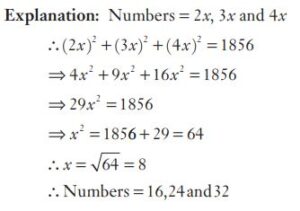
#2. If x : y = 3 : 4 and y : z = 3 : 4, then  is equal to :
is equal to :
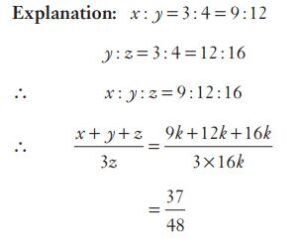
#3. A single discount equivalent to the series of discounts 20%, 10% and 5% is equal to :

#4. Two numbers are in the ratio 1 : 3 If their sum is 240, then their difference is :
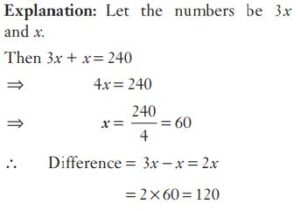
#5.  is equal to
is equal to
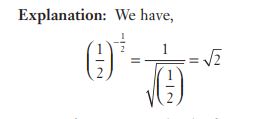
#6. (461 + 462 + 463) is divisible by
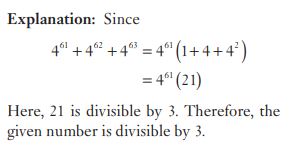
#7. The total discount on Rs 1860 due after a certain time at 5% is Rs 60. Find the time after which it is due :

#8. An old article is available for Rs 12000 at cash payment or is available for Rs 7000 cash payment and a monthly instalment of Rs 630 for 8 months. The rate per cent per annum is :

#9. The rate of simple interest per annum of bank being decreased from 5% to % the annual income of a person from interest was less by Rs 105. The sum deposited at the bank was :
% the annual income of a person from interest was less by Rs 105. The sum deposited at the bank was :

#10. The average per day income of A, B and C is Rs. 450. If the average per day income of A and B be Rs. 400 and that of B and C be Rs. 430, the per day income of B is :

#11. When a particular number is subtracted from each of 7, 9, 11 and 15, the resulting numbers are in proportion. The number to be subtracted is :
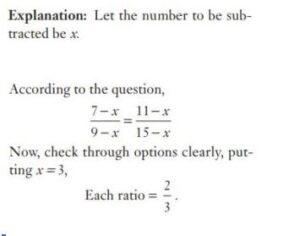
#12. The value of ![3\div[\left(8-5)\div{\{(4-2)+(2+\frac{8}{13})}\}\right]](https://s0.wp.com/latex.php?latex=3%5Cdiv%5B%5Cleft%288-5%29%5Cdiv%7B%5C%7B%284-2%29%2B%282%2B%5Cfrac%7B8%7D%7B13%7D%29%7D%5C%7D%5Cright%5D++&bg=ffffff&fg=000&s=0&c=20201002) is
is
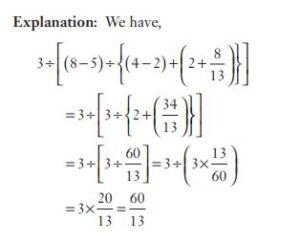
#13. A man bought a watch for 10% discount. If had bought for 20% discount he would have got the watch for Rs 125 less. The marked price of the watch is :
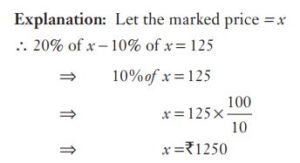
#14. A number is first decreased by 20%. The decreased number is then increased by 20%. The resulting number is less than the original number by 20. Then the original number is
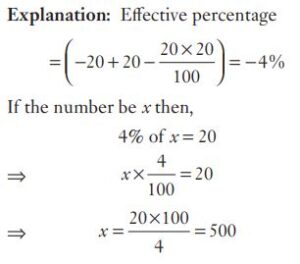
#15. The average of five numbers is 7. When three new numbers are included, the average of the eight numbers becomes 8.5. The average of three new numbers is :
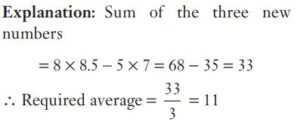
#16. The value of  is
is

#17. The HCF and LCM of two numbers are 21 and 84 respectively. If the ratio the two numbers is 1 : 4, then the larger of the two numbers is
HCF of numbers = 21
Numbers = 21x and 21y
Where x and y are prime to each other.
Ratio of numbers = 1 : 4
Larger number = 21 × 4 = 84
#18. If a number x is 10% less than another number y and y is 10% more than 125, then x is equal to :

#19.  is equal to
is equal to

#20. If a person marks a product 25% above the cost price but allows 10% discount, then the percentage of profit is :

#21. In a class, there are ‘z’ students. Out of them ‘x’ are boys. What part of the class is composed of girls?
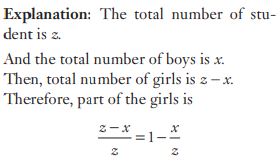
#22. A store has an offer ‘Buy 4 Get 1 Free’. What is the net percentage of discount?
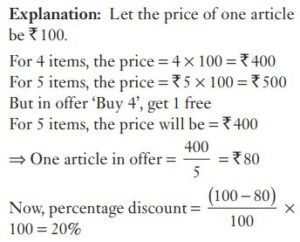
#23. In what time will Rs 10000 amount to Rs 13310 at 20% per annum if compounded half yearly?
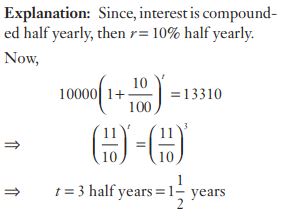
#24. The least number which must be added to 1728 to make it a perfect square is :

#25. Mohan lends Rs 500 to John and a certain sum to Tom at the same time at a simple interest of 8% per annum. If in 4 years, he altogether receives Rs 210 as interest from the two, then the sum of money he lent to Tom was
